Marijuana charges hold past offenders back from future opportunities
Picture of medical cannabis taken by Gabrielle Korein taken on Nov. 29, 2021. The University Counseling Center’s survey found the many U.S. college students are using cannabis.
Linda Roon’s dreams of becoming a lawyer came to a halt when her dorm’s community director searched her room and found drug paraphernalia, including four ounces of marijuana and ten THC cartridges in March of 2019.
Roon, who is using a pseudonym to avoid losing possible future job opportunities, was in custody at the New Orleans Police Department three hours later.
Roon was arrested in Louisiana, one of several states that have recently passed legislation to decriminalize possession. At the time, marijuana had been decriminalized in New Orleans, but remained illegal in the state. Despite these new developments, she will join a host of past offenders who continue to face jail time, fines, and a lasting record that may limit opportunities after their release.
At the time of her arrest, Roon had been selling cannabis products for 13 months, a felony offense. In the beginning, she said she would only buy one or two grams at a time and sell them to friends so she could afford her smoking habits. However, when her room was searched, she had just made her largest buy to date.
The police confiscated a quarter pound of marijuana, ten carts, and $400 dollars worth of small bills that she had hidden in an asthma container in her room. In New Orleans, this meant she would be facing a felony charge minimum of five to 30 years as a first time offender if convicted.
All charges were dropped.
Roon was arrested for possession with intent to distribute marijuana, possession with intent to distribute marijuana within 2,000 feet of a school, a drug free zone, and possession of paraphernalia. The latter being the only misdemeanor of the charges.
Roon said she still plans on attending law school but she’s worried about how her charges will affect her future career, as for some applications, she is required to report and explain her arrest record on her applications.
“That’s the thing that gets you. Even if you’re arrested but never charged, it still follows you,” Roon said. “Job applications, grant applications, everything.”
Jay Banks, District B city councilman, said that policing marijuana possession is a waste of the city’s limited police force and resources which could be diverted to violent crimes.
“We have wasted resources on something that is not a public safety issue,” Banks said. “Clearly, there are downsides to having any mind altering substance, but people need to be able to do it as safely as they can.”
When Orleans Parish District Attorney Jason Williams ran for election in 2020, he said his office would not prosecute low-level drug charges, excluding heroin and fentanyl, or any other crimes that stem from mental illness, poverty, or addiction, according to The Lens Nola. Williams’ office did not respond for a comment.
Despite the city’s new stance on decriminalization and prosecution, William Snowden, director of the Vera Institute of Justice, said policing policies have remained the same, meaning people can still be arrested and booked for low-level possession and distribution charges.
Banks said that people of color are disproportionately arrested for marijuana and drug related offenses because of historical systems of racism. In 2020, 86% of cannabis arrests and summons in New Orleans were issued to Black people, according to Nola.com.
“There’s no human cry when it’s people of color,” Banks said. “There’s a difference in responses and actions based on who the users are.”
Mitchell Crusto, a Loyola law professor, said the War on Drugs, a 1970s government initiative to stop illegal drug use, contributes to the racist ideology used to support the disproportionate targeting of communities of color.
Crusto said the War on Drugs, race, and mass incarceration are all interrelated.
“Unfortunately, this is a continuing saga of treating people of African descent as less than human,” Crusto said about the War on Drugs.
Crusto said that drug trafficking exists within communities of color because of historical systems of racism that have caused a lack of resources and jobs. Without access to the same opportunities, black market and drug industries grow as a means of making money outside of the system.
“It would be great if the city would invest in our people and give them skills that provide alternatives to drug trafficking,” Crusto said. “But instead, we keep them down.”
A 2015 study by the Vera Institute of Justice identified that the average cost per inmate in Louisiana is around $16,000. Snowden said legalization would cut costs by freeing up space in prisons and allow money to be spent on community initiatives and supporting past offenders after their release.
“Imagine what it would look like if we gave them a $5,000 financial package to get back on their feet rather than keeping them for another five years or so,” Snowden said.
The Louisiana Department of Public Safety & Corrections has established reentry and rehabilitation programs in an effort to reduce incarceration rates and make the process of reentering into general society smoother, according to its website. The program offers industry-based certifications, an Associates or Bachelor’s degree in theology, and college credits towards a technical degree, among other certifications.
Similarly, in 2017 the city introduced the Law Enforcement Assisted Diversion program, a mental health approach to public safety and criminal justice. The program allows officers to send willing individuals to a case management program instead of arresting them if the offense is believed to be connected to mental illness, substance abuse, or social challenges, according to the New Orleans Health Department.
Snowden said that now is the time to rely less on the police department and invest more into community programs.
“This is a public health problem, not a crime,” Snowden said. “We shouldn’t have law enforcement or courts as the liaison or connection between people and their needed treatment.”
The cost of criminalization isn’t just a financial and bureaucratic burden on the government. The consequences of an arrest record also have social repercussions, affecting past offenders’ careers and relationships.
“It has ruined people’s careers by creating a criminal record,” Crusto said. “It has made criminals out of people who are deprived of legal employment and access to capital.”
Roon’s childhood dream of becoming a lawyer has been overshadowed by her marijuana arrest, she said. Like other offenders, she will continue to face challenges with regard to higher education while also trying to navigate the changing cannabis laws in the country.
“My major concern is with the bar,” Roon said. “I have no choice but to apply for the bar in a state that is pretty lenient with marijuana laws.”
Roon said that her only experience with the criminal justice system is related to her marijuana charges, which she is actively working to have expunged. She remains hopeful that the ongoing legalization developments will work to her benefit as people begin to destigmatize cannabis use instead of using it as a judge of character or ability, she said.
Snowden said future conversations regarding decriminalization and possible legalization across the nation need to support the retroactive procedures of pardons, releasing an individual from punishment, and sealing past records from the public.
“It’s not fair today going forward to just say it’s okay, but not talk about how it’s been criminalized,” Snowden said. “We have to accompany it with other reforms.”
NATIONAL
Cannabis use has been legalized for recreational use in 18 states and decriminalized in 13 states across the country. Marijuana is currently illegal on a federal level
LOUISIANA
Possession charges of marijuana flower vary with anything under 14 grams being punishable by a fine of up to $300, with up to 15 days of jail time and anything over 60 pounds resulting in five to 30 years and $100,000 fine in Louisiana. Distribution, or non-medical sale, of any amount of marijuana is punishable by five to 30 years of imprisonment plus a fine of up to $50,000.
In August, the state advanced legalization efforts by eliminating the possibility of jail time for possession under 14 grams. While possession is still a misdemeanor state-wide, it’s only punishable by a fine of up to $100.
NEW ORLEANS
In the city, Mayor Mitch Landrieu signed an ordinance partially decriminalizing marijuana by providing tickets, rather than arrests, for possession. However, police were, and still are, allowed to make arrests for possession under state law.
In August, the New Orleans City Council voted to fully decriminalize possession of under 14 grams of marijuana. The vote immediately forgave anyone arrested for simple possession, meaning they will face no charges. They also issued a blanket pardon which cleared around 10,000 past convictions and will immediately waive any requirements for future court appearances for recent offenders.
Smoking in public remains illegal, but instead of receiving a drug summons, smokers will receive a ticket for violating the Smoke-Free Air Act.
Sources: nola.com and usnews.com

Oliver Bennett is a mass communications journalism and sociology major from Dallas, Texas and Natchitoches, Louisiana. This semester, he’s excited to...

Jabez Berniard is mass communication major with a concentration in journalism and a minor in legal studies. She is excited to serve this semester, as the...
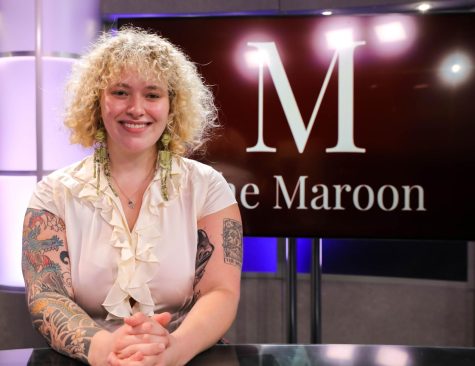
Gabrielle Korein is a Mass Communication senior who is passionate about writing, photography, and videography. Gabrielle has spent over 7 years as a freelance...


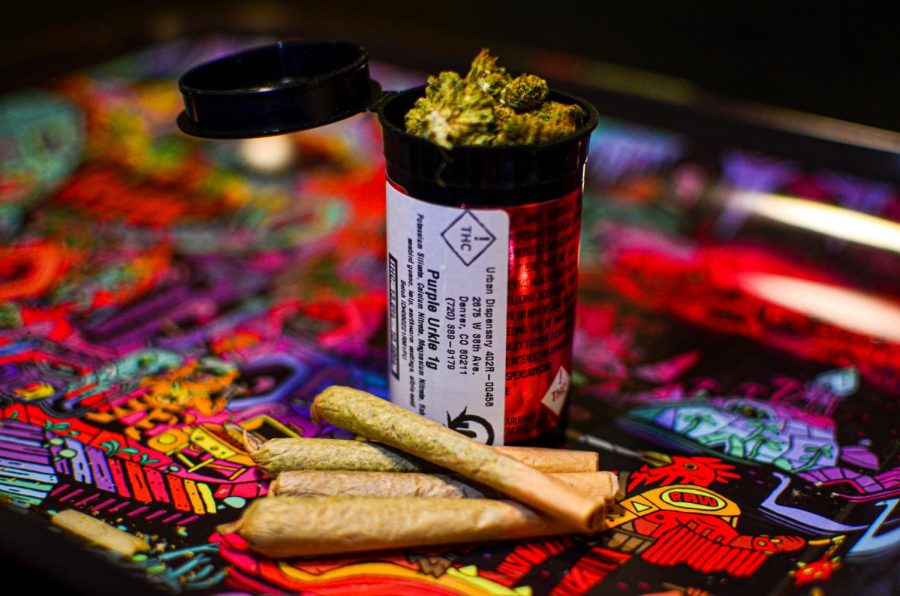
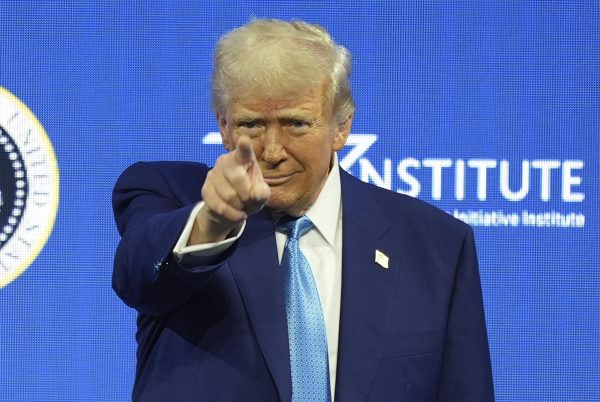
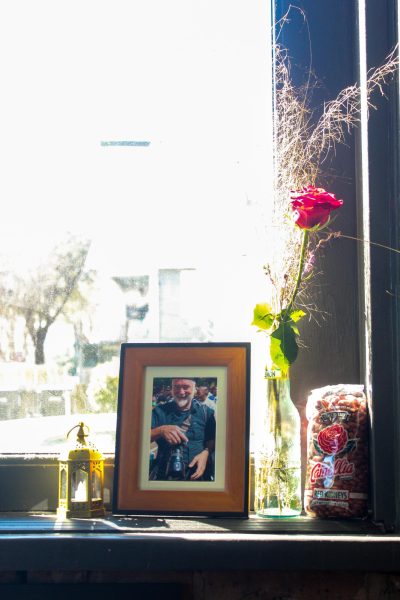
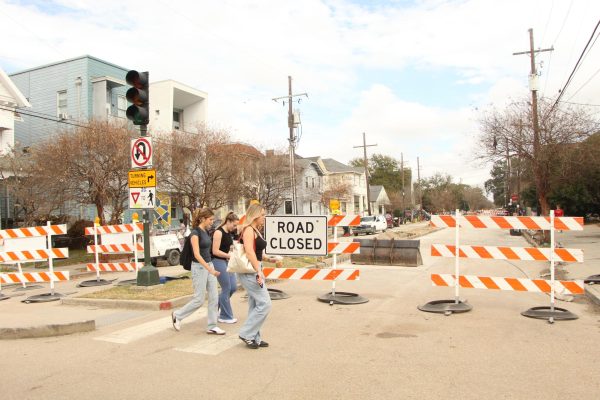
Be legal • Jun 12, 2022 at 1:05 pm
Then don’t get involved with marijuana?